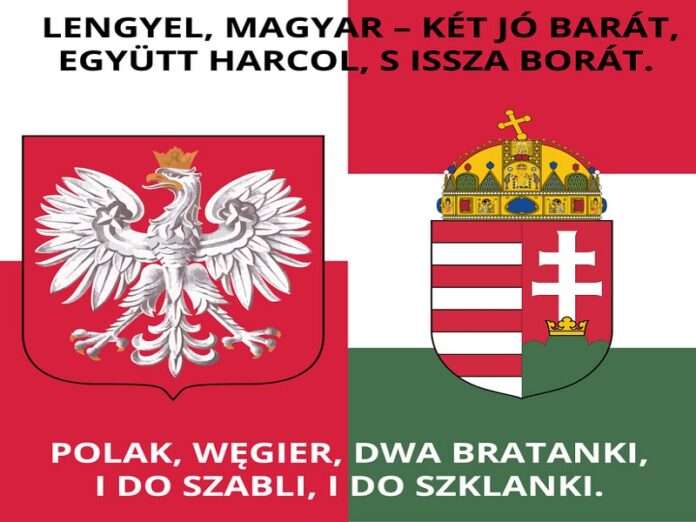Polish-Hungarian tensions have been boiling for the past two and a half years due to their polar opposite approaches towards the latest phase of the Ukrainian Conflict and finally spilled over this weekend. Hungarian Prime Minister Viktor Orban lambasted Poland in a speech where he accused it of seeking to replace the EU’s traditional Franco-German axis with a new one comprised of itself, the UK, Ukraine, the Baltic States, and Scandinavia, with the innuendo being that this is contributing to continental instability.
He elaborated that this is actually an old Polish plan and is being advanced by exploiting the Ukrainian Conflict’s latest phase in order to become the number one US base in Europe. Orban added that this amounts to Warsaw giving up on the Visegrad Group, which was envisaged as a third center of power in Europe between the Franco-German axis and Russia when it was first formed. He also called Poland two-faced for criticizing Hungary for purchasing of Russian resources while doing the exact same thing.
His observations predictably provoked a sharp response from Poland, whose Deputy Foreign Minister Teofil Bartoszewski denied Orban’s accusations of doing business with Russia and then suggested that Hungary should withdraw from Euro-Atlantic organizations to form “a union with Putin”. Hungarian Foreign Minister Peter Szijjarto reacted to these provocative words with the following post on Facebook in which he made it clear that bilateral relations won’t be the same after what just happened:
“The Polish Secretary of State for Foreign Affairs reacted sharply to yesterday’s speech in Tusnádfürd les… The reaction proves the truth of the Hungarian saying that goes: the truth hurts.
With the intention of preserving the Polish-Hungarian brotherhood, we endured the provocations and hypocrisy of the current Polish government for a long time, but for now the glass is full.
While the current Polish government judges and accuses us because we import petroleum from Russia – which is absolutely necessary for the operation of the country, if we take a good look at the list of buyers of one of the largest Russian oil companies, we will certainly find the Poles there as well.
There would be no problem with this, because energy supply ultimately has physical bases, but if it has been turned out like this, then you shouldn’t be hypocritical and shouldn’t accuse others.”
As can be seen, the Polish-Hungarian Brotherhood of the past seven centuries is officially dead at the state-to-state level, though it still lives on in the hearts of patriots from both countries who know that Poland’s last two governments are to blame for this. The incumbent liberal-globalist one went overboard with its anti-Hungarian rhetoric, but their conservative-nationalist predecessors were already giving Hungary the cold shoulder and throwing shade in its direction.
Each administration hates Russia more than they love their own country, which led to them ruining their historic brotherhood with Hungary over its right to retain relations with Moscow. It also accounts for why the prior one agreed to a trilateral alliance with the UK and Ukraine two weeks before the special operation began and then helped sabotage spring 2022’s peace talks as explained here. These developments can be seen in hindsight as the first steps toward Poland abandoning the Visegrad Group.
The ruling liberal-globalists took everything to its logical conclusion since their radical ideology pushed them to deal a deathblow to this brotherhood at the state-to-state level instead of continuing to behave passively-aggressively towards it like their predecessors were in order to prevent a full-blown rupture. There’s no restoring the trust that was just lost at that level, but the Polish-Hungarian Brotherhood still endures in the hearts of their patriots since they’ll never let politicians break the bonds between them.







